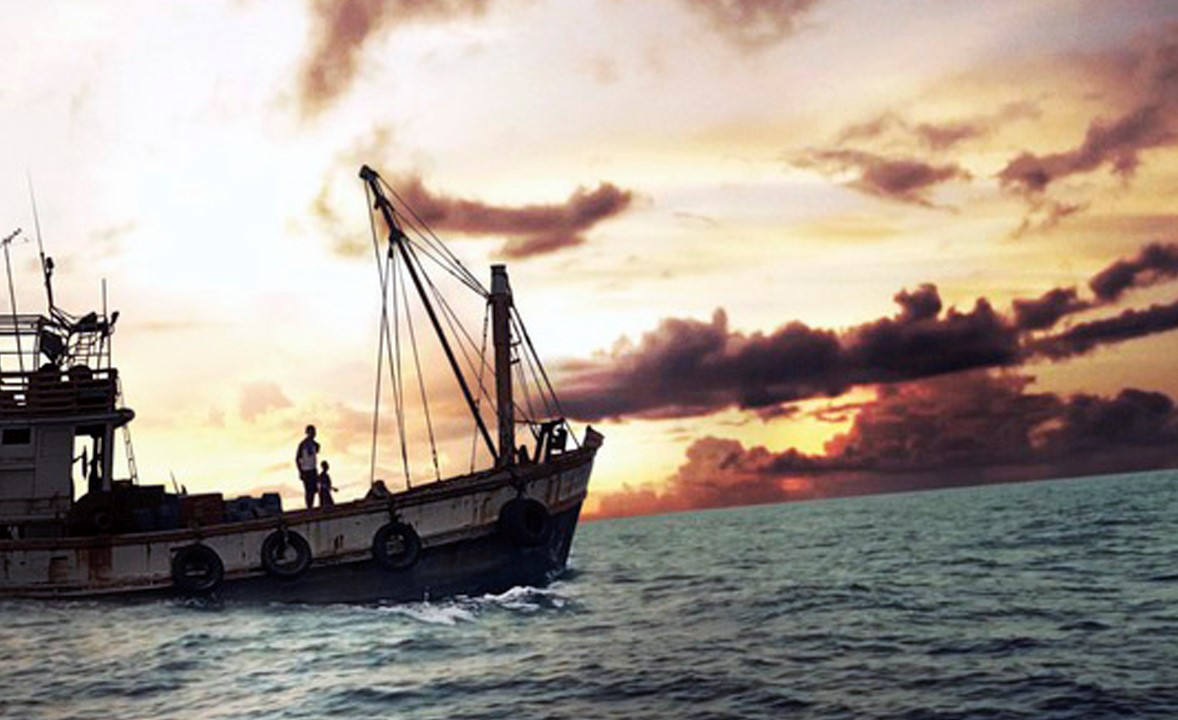Popular Reads
Top Results
Can't find what you're looking for?
View all search resultsPopular Reads
Top Results
Can't find what you're looking for?
View all search resultsIndonesia’s maritime needs outward looking approach
Indonesian foreign policy should focus on creating a more cohesive Southeast Asia to build regional capacity to eradicate human trafficking.
Change text size
Gift Premium Articles
to Anyone
O
ver the past few years, Indonesia has been paying increasing attention to maritime issues. As the world’s largest archipelagic state, Indonesia aspires to be “the axis of the world’s maritime.” The recent arrest of a then-maritime affairs and fisheries minister presents an opportunity to take stock of progress toward that aspiration.
It is important to start by understanding the gravity of today’s maritime issues. For a start, domestic maritime issues are no longer domestic. The integration of the world market, technological development, and the world’s swelling and mobile population all decrease the effectiveness of domestic governance in domestic maritime affairs. Maritime industries are global and require supranational governance.
Second, the human consequences of weak governance are disastrous. For example, not only is the fishing industry among today world’s worst human rights offenders in the form of slavery but it is also notorious for flagrant violations of international environmental law. These failings thrive in an international legal system that puts a premium on state sovereignty.
Our preliminary research findings suggest that Indonesians who work overseas in the fishing industry are very likely to experience labor rights issues. What makes it worse is that these abuses happen in isolated fishing boats. Not only do these abuses take place beyond the jurisdictional reach of both domestic and international laws but the states of vessel registry show a distinct lack of interest in prosecution (Taiwan is a particularly well documented example).
It has become commonplace to hear about the intrusion of foreign fishing vessels into territorial sea or domestic waters. Many fail to appreciate that this intrusion is a confirmation of the worldwide trend that world fish stocks have been decreasing dramatically. Like it or not, we live in an interconnected world.
These two examples show that for a domestic measure to induce any real effect, it must be supported by a robust foreign policy to enlist international law to protect Indonesian nationals working abroad. That means foreign policy must be thoroughly considered, then vigorously pursued in the many available multinational and bilateral fora.
Indonesian foreign policy should focus on creating a more cohesive Southeast Asia to build regional capacity to eradicate human trafficking. ASEAN has already developed soft law to combat illegal fishing that is destabilizing the region.
The 2016 Joint ASEAN-Southeast Asian Fisheries Development Center Declaration on Regional Cooperation for Combating is a case in point. Indonesia can use it as a starting point with like-minded states to achieve more than just combating illegal fishing.
It should be Indonesia’s first order of business to lead an agenda that pushes for a more law-based order in maritime Southeast Asia. To start, two immediate steps are reconceptualizing the role of the Office of the Coordinating Minister of Maritime and Investment Affairs so it can coordinate the governmental organs that have intersecting roles, and incorporating a more proactive approach to influencing supranational fora.
The importance of looking outward for Indonesia is justifiable not only from a humanitarian but also from an economic standpoint. The fact that Indonesia has a swelling and increasingly young population means that remittances will be a growing part of the national gross domestic product. Remittances from fairly treated and paid workers are greater than remittances from exploited and trafficked workers.
Supranational governance is the best place to start in ensuring protection for Indonesian workers abroad.
***
Pranoto Iskandar is an O’Brien fellow at McGill Faculty of Law and founding editor of the Indonesian Journal of International and Comparative Law. Beth Lyon is a clinical professor of law at Cornell Law School, associate dean for experiential education and clinical program director, and founding director of Cornell’s Farmworker Legal Assistance Clinic. Both writers codirect the Comparative Farmworker Law Project in Asia.










